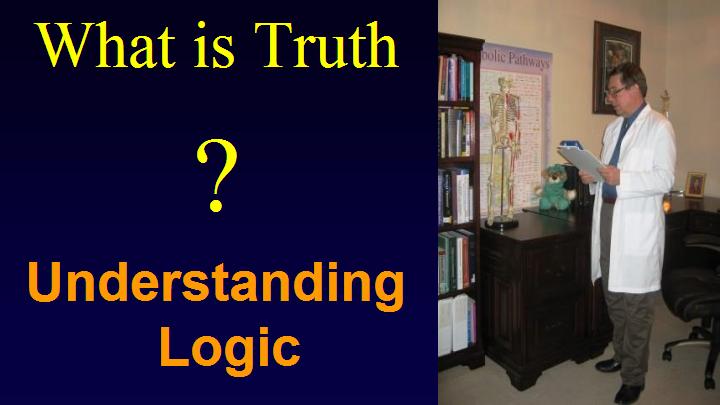Being able to discern the difference between truth and fallacy is a critical life-skill that is no longer being taught in schools. Individuals suffer for lack of this skill, and society does as well. Our constitutional republic depends on an educated populace that can discern the difference between the truth and political or commercial BS.
It is said that Abraham Lincoln's rhetorical skills as a lawyer and politician came from his study of the Greek mathematician Euclid, and the method of constructing a logically defensible argument.
In simplified form, we start with one or more premises, which we believe are true, and use rules of inference to arrive at logically correct conclusions. If each step is done correctly, then we can conclude that if the premises are true then the conclusion is also true.
For example, "If John is taller than Mary, and Mary is taller than Sue, then John is taller than Sue."
A formal presentation of logical inference takes the form of a series of premises that are typically numbered, e.g.:
- John is taller than Mary (premise)
- Mary is taller than Sue (premise)
- If X > Y and if Y > Z then X > Z (transitive rule)
- Therefore John is taller than Sue (1, 2, 3)
Here is an example of a logically invalid argument:
- Ivermectin (Stromectol) is used to treat worms in horses (true premise)
- People are not horses (true premise)
- Therefore people should not take ivermectin (fallacious argument!)
What is wrong with this argument? Both the first and second premises are true. But the conclusion does not logically follow, and is therefore illogical or fallacious.
The first premise is a half-truth. All premises must cover the entire "universe of discourse," which in this case includes people and horses.
- The whole truth is "ivermectin has been approved by the FDA to treat parasites in horses and in humans"
- Any drug that is approved by the FDA for one purpose can be prescribed "off-label" to treat other conditions if there is reason to believe it may be helpful.
- There is reason to believe that ivermectin may help treat COVID-19 (premise).
- Therefore, ivermectin can be prescribed "off-label" to treat COVID-19 (5, 6).
Here is an example of a logically valid argument that causes most people to disagree:
- The mother will be happy if the baby stops crying (premise)
- The baby will stop crying if it dies (premise)
- Therefore the mother will be happy if the baby dies (1, 2, transitive rule).
Taken separately, both premises 1 and 2 are accepted by most people to be true. But the conclusion is unreasonable. Why?
We have identified that the first premise is not sufficiently comprehensive in the present context. Let's try again.
In this case, the "universe of discourse" must include the baby stops crying, the baby dies, and the baby goes to sleep.
- The mother will be happy if the baby stops crying and doesn't die (premise)
- The baby did not die (premise)
- The mother will be happy if the baby stops crying (1, 2 ; if A and B are true then A is true)
- The baby will stop crying if it goes to sleep (premise)
- Therefore the mother will be happy if the baby goes to sleep (3, 4, transitive rule).
All of this analysis seems like a lot of work. But it becomes easy with practice, and with practice you don't even have to think much to recognize logically valid or invalid arguments.
This is an important critical thinking skill that is not being taught to our children.
You are never too old to learn, but you have to practice!
Keep your mind active to stave off senile dementia! Study a new subject (like logic!)
Relevant Links to Related Topics
-
How to Read a Paper by Trisha Greenhalgh
This edition of Doctor's Housecall aired live on KMOG radio FM103.3 and AM1420 in Payson, AZ between 5pm and 6pm MST (Arizona Time) on January 25, 2022. Dr. Weyrich offers a free 15 minute consultation at
 +1 (888) 391-0414
to discuss any comments or questions you might have about this broadcast (subject to
schedule availability).
+1 (888) 391-0414
to discuss any comments or questions you might have about this broadcast (subject to
schedule availability).


 Play Video on YouTube
Play Video on YouTube